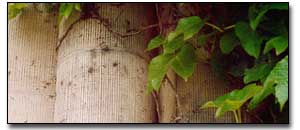
The Graduate English Department, with more than 70 full-time faculty members and over 100 graduate students, was formed under the direction of A.S.P. Woodhouse in 1947 (although the first graduate degree was awarded in 1910). The success of its faculty and graduates alike contributes to its prestigious reputation as one of the strongest and most diverse graduate programs in North America. The distinguished graduate faculty represents a wide array of research areas and approaches to the study of literature, including both rigorous historical scholarship and the newer theoretical, cultural, and interdisciplinary methods. The research of faculty in fields such as African Literature, Queer Theory, Indigenous Literature, Asian North American Literature, and Gender Studies frequently intersects with the interests of faculty who work in historical periods, producing new clusters of expertise and fresh conjunctions of inquiry.
This rich variety is exemplified in the thirty or more graduate courses that are offered every year in the Department. These offerings are supplemented by the many courses offered in other affiliated departments and programs, such as Comparative Literature, the Centre for Medieval Studies, the Pontifical Institute, the Graduate Centre for the Study of Drama, and a wide range of collaborative specializations. Robarts Library, one of the best university libraries in North America, provides a superb resource for scholarship. It is augmented by a number of specialized libraries, including the Thomas Fisher Rare Book Library.
The Department offers programs of study leading to the Master of Arts (MA), the Master of Arts in English in the Field of Creative Writing (MA CRW), and Doctor of Philosophy (PhD) degrees. The programs aim to provide graduate students with a broad background in English, Canadian, American, and World Literatures in English, and to give them a foundational knowledge of literary and cultural theory. Critical Topographies, for incoming MA students, is a required course that provides students with a set of maps with which to understand the discipline and its research methods (note that MA CRW students are not required to take this course). The mandatory Essential Skills Workshop Series introduces the incoming cohort of doctoral students to the essential skills they will need in order to succeed in the PhD Program in English and beyond. A mandatory course for doctoral students in pedagogical theory and practice, Teaching Literature, prepares them to be effective teachers. The Department’s Placement Officer offers workshops and other more targeted and individual forms of support for advanced students entering the academic and non-academic job markets, and the Department has an excellent record of placing its graduates in tenure-track positions in Canada, the United States, and abroad as well as preparing students for a wide range of other careers.


